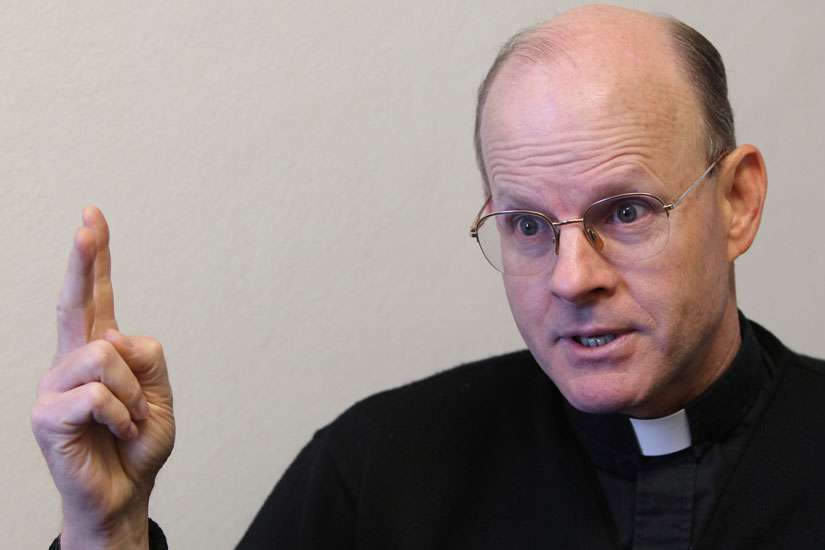Msgr. Stephen Rossetti told hundreds of Irish delegates to the first national conference on safeguarding children that the Catholic Church in the United States spent $43 million on child abuse prevention and education just last year.
The priest told Catholic News Service following his keynote address that secular organizations and other churches in the United States were now coming to the Catholic Church to learn from its policies.
More than 5.2 million adults and children have gone through the safe environment training in the United States, and more than 3 million priests, lay employees and volunteers have gone through background checks.
He highlighted that in the United States, child abuse rates are dropping throughout society and the church.
"At the recorded height, the John Jay Study said 4 percent of clergy were involved as perpetrators. That number has fallen to less than 1 percent. We have turned the corner, but we shall not rest until the number of abused children is zero," he said.
Msgr. Rossetti spoke at a Feb. 27-28 conference organized by Ireland's National Board for Safeguarding in the Catholic Church.
He told participants, who included laypeople, religious and bishops: "Good response policies are important. But the heart of the matter is education -- stopping abuse before it occurs."
Msgr. Rossetti, a professor at The Catholic University of America and a visiting professor at Rome's Pontifical Gregorian University, thanked Marie Collins, a member of the Pontifical Commission for the Protection of Minors and a victim of clerical sex abuse, "and all those like you who have stood up and told your story. More than anything, this is what is turning the tide."
Asked by CNS about the dilemma for religious orders of having members who have abused remain on in religious life, he said, "The safest thing for children is to take these individuals out of ministry and have them in an environment that is a supervised community."
"Zero tolerance in the States does not mean that you simply cast them out; it means they can't minister. It doesn't mean he can't pray with the community," instead a priest might be placed in an administrative job, he said.
In his address, Msgr. Rossetti underlined that ministry, as canon law understands it, is a privilege, not a right.
The question of accountability of bishops and others in leadership "is now on the front burner," he said.
In an address Feb. 27, Archbishop Eamon Martin, president of the Irish bishops' conference, warned against becoming "safeguarding-weary" or complacent.
He said the legacy of betrayal, trauma and shame that clerical abuse has left in its wake must never been forgotten, and he called for the church's safeguarding network to get behind the implementation of the new revised Standards and Guidance, which is due to be rolled out over the next year.
This new guidance focuses on care for those making allegations, as well as care of priests and religious who have been accused of abuse, including those facing long delays awaiting the conclusion of civil and canonical processes.
He appealed for increased openness to monitoring by religious orders and dioceses in a bid to prevent those intent on abusing from exploiting loopholes.
Ireland's safeguarding board was established in a bid to restore public confidence in the church's handling of allegations of abuse against priests and religious after a series of judicial reports uncovered serious failings. Four Irish bishops have resigned following severe criticism of their failures in relation to handling allegations of abuse.


